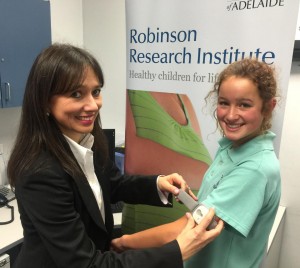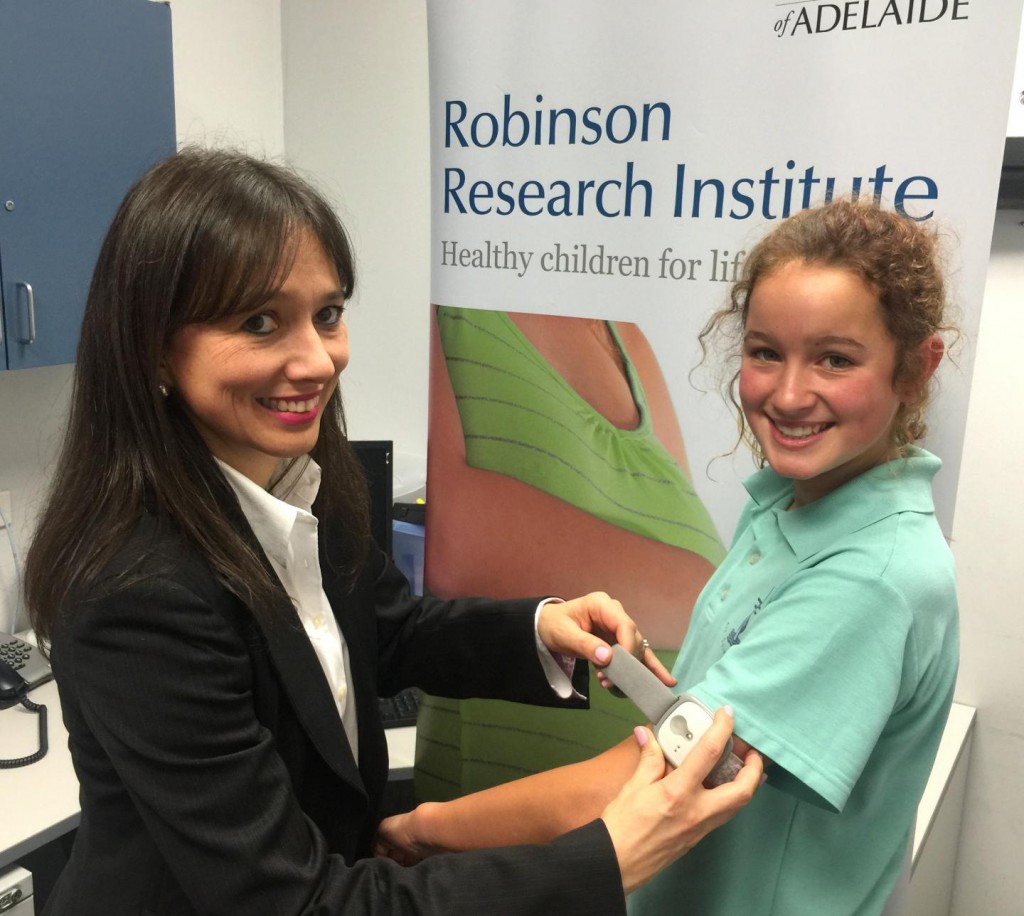New research shows improvements in cardiovascular health for type 1 diabetic children who take just 1000 extra steps each day.

Keeping count of daily steps and boosting physical activity can really pay off for children with type 1 diabetes, according to new research from the University of Adelaide and the Women’s and Children’s Hospital.
For the first time, researchers have shown that children who have type 1 diabetes can improve their cardiovascular health, simply by taking an extra 1000 steps a day.
Researchers tracked the daily physical activity of 90 pre- to early-teenage children with type 1 diabetes.
Continue Reading Below ↓↓↓
The results – published online ahead of print in the journal Diabetes Care – show that those who undertook additional physical activity showed improvements in their blood vessel structure, and other reductions in risk factors for heart disease.
“Children with type 1 diabetes often report lower physical activity levels than recommended for children of the same age,” says lead author Dr Alexia Peña, from the University of Adelaide’s Robinson Research Institute and Pediatric Endocrinologist at the Women’s and Children’s Hospital in Adelaide.
“We also tend to see early signs of atherosclerosis – a build up of plaque in the arteries – and other adverse cardiovascular risks at an earlier age than usual for these children.”
The research team found that 55% of the children took fewer than 10,000 steps per day.
“There were clear correlations between artery thickness and the average number of steps per day. With an increase of 1000 steps each day, we saw a measurable decrease in this arterial thickness,” Dr Peña says.
“In the children who had extra physical activity, we also saw reductions in weight, blood pressure, and trigylcerides, which indicates an overall reduction in risk of heart disease.”
Dr Peña says this is the first time the daily number of steps has been shown to directly relate to early signs of adverse cardiovascular risk in children with type 1 diabetes.
“Our findings emphasize the importance of physical activity for children, and the need for advice on the benefits of exercise for children with type 1 diabetes. The more steps they do, the better,” Dr Peña says.
This research has been supported by Diabetes Australia Research Trust, Australasian Paediatric Endocrine Care, and the Women’s and Children’s Hospital Foundation.
Source: University of Adelaide
Image Credit: University of Adelaide
Journal: Diabetes Care
Continue Reading Below ↓↓↓











